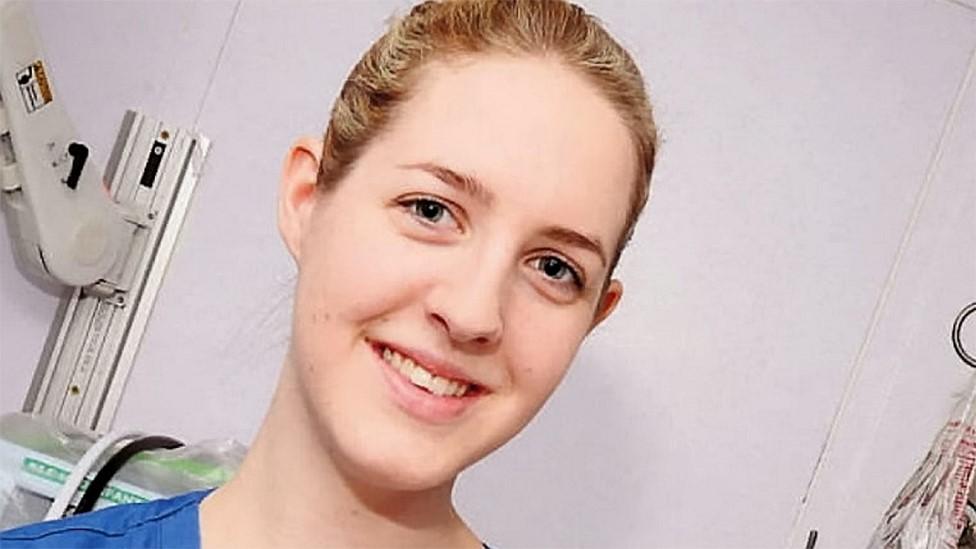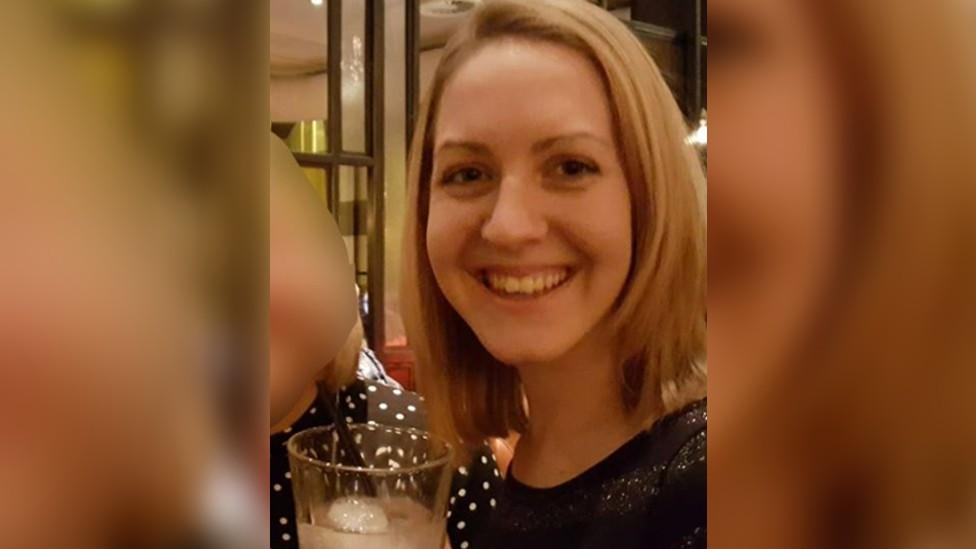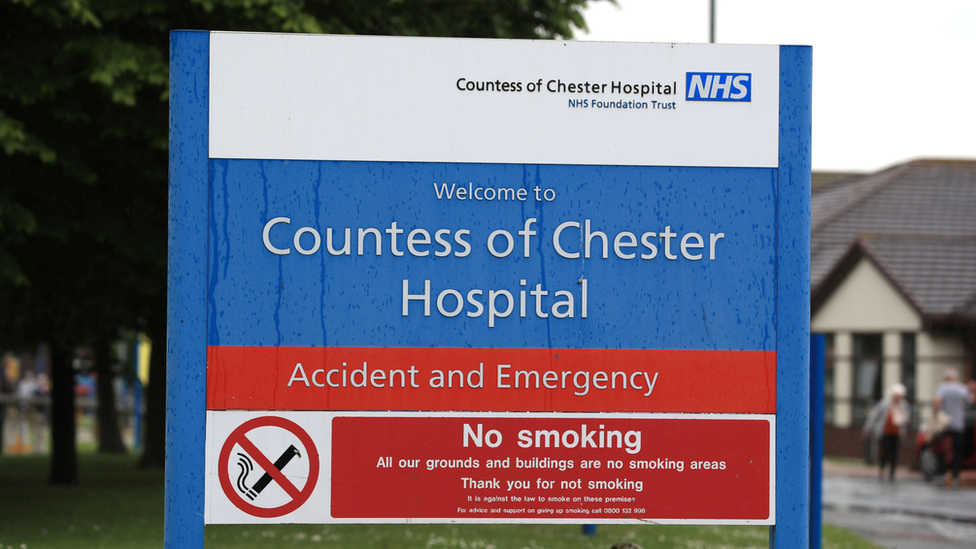Lucy Letby: Parents saw baby resuscitated twice, murder trial told
- Published

Lucy Letby is accused of murdering seven babies and trying to kill 10 others
A mother and father have told how they witnessed medics desperately trying to resuscitate their baby girl on two consecutive mornings, nurse Lucy Letby's murder trial has heard.
Ms Letby is accused of trying to kill the infant, referred to as Child H, on two occasions at the Countess of Chester Hospital in September 2015.
She is charged with murdering seven babies and attempting to murder 10 others between 2015 and 2016.
Ms Letby, 32, denies 22 charges.
In a statement read to court, Child H's mother, who is diabetic, explained that she was induced at the hospital on 22 September 2015 due to concerns about her blood sugar levels.
Child H was born six weeks prematurely but doctors initially said she was "absolutely fine".
Soon after the birth, her mother, who cannot be named for legal reasons, said the baby "began to look pale and began to make grunting noises".
Child H was placed on the neonatal unit, where Ms Letby worked, and was later put on a ventilator.

Lucy Letby denies all the charges against her
The mother said she and the child's father were "quite annoyed" they had not been informed about this, and said it was a "shock" to see their daughter on a ventilator.
After several X-rays, it was established Child H had suffered a suspected lung puncture.
The following morning, the mother recalled that nursing staff woke her up and told her to come to the neonatal unit "right away" and inform the father to come too.
When she arrived, Child H was being treated with "lots of medical" people surrounding her.
"It was obvious to me they were resuscitating her", the mother's statement said.
"Staff managed to get [Child H] back and continued working on her, they were not able to explain why she suffered a cardiac collapse," she said.
The court was told the baby made a good recovery but later that day her parents were again contacted and told she was "not responding".
The parents were met with an "almost identical scene".
Following this second incident, Child H was transferred to Arrowe Park Hospital on 27 September.
She "improved dramatically" while at Arrowe Park and was eventually discharged on 9 October, the jury heard.
There were "no long-term complications whatsoever" for Child H, the court was told.

The baby was being cared for on the neonatal ward at Countess of Chester Hospital
Jurors were also shown Facebook messages sent by Yvonne Griffiths, who was then the neonatal unit deputy manager, to Ms Letby on the morning after Child H's first collapse.
Ms Griffiths commended Ms Letby for "all your hard work these last few nights" and said it was "nice to see your confidence grow as you advance through your career".
Ms Letby thanked her, adding: "That's really nice to hear as I gather you are aware of some of the not so positive comments that have been made recently regarding my role which I have found quite upsetting.
"Our job is a pleasure to do and just hope I do the best for the babies and their family."
After Child H's second collapse on 27 September, Ms Letby exchanged messages with a former nursing colleague.
Ms Letby said: "It's all just so rubbish lately and always seems to happen at night when less people.
"Everyone is pretty burnt out and unit been awful."
'Excessive milk'
The court earlier heard from expert witnesses Dr Dewi Evans and Dr Sarah Bohin in relation to the case of Child G.
Ms Letby is accused of attempting to murder the infant three times at the Countess of Chester Hospital in September 2015.
The prosecution alleges Ms Letby overfed Child G with milk through a nasogastric tube or injected air into the same tube.
The court was shown a nursing note recorded by Ms Letby on the morning of 21 September 2015 which stated that Child G "had two large projectile milky vomits" and had "apnoea" for a short period.
Dr Evans said, in his professional opinion, Child G was given "far more milk" during her nasogastric tube feed than the planned 40ml.
He added: "'If you had been given 40ml of milk then it would not explain how she had two large projectile vomits and still 30ml of milk left in her stomach".
The expert said in his conclusion Child G had received an "excessive amount of milk" and "that caused" her collapse.
The jury has previously been told the baby survived but suffered irreversible brain damage and was left with disabilities including quadriplegic cerebral palsy.
Text messages sent by Ms Letby in the days after Child G's collapse to a colleague noted how busy the unit was.
She said: "It's completely unsafe", followed by a frowning emoji.
The trial continues.

Why not follow BBC North West on Facebook, external, Twitter, external and Instagram, external? You can also send story ideas to northwest.newsonline@bbc.co.uk, external
Related topics
- Published15 December 2022

- Published14 December 2022

- Published13 December 2022

- Published12 December 2022

- Published6 December 2022

- Published2 December 2022

- Published1 December 2022

- Published30 November 2022

- Published29 November 2022

- Published28 November 2022

- Published25 November 2022

- Published24 November 2022

- Published23 November 2022
